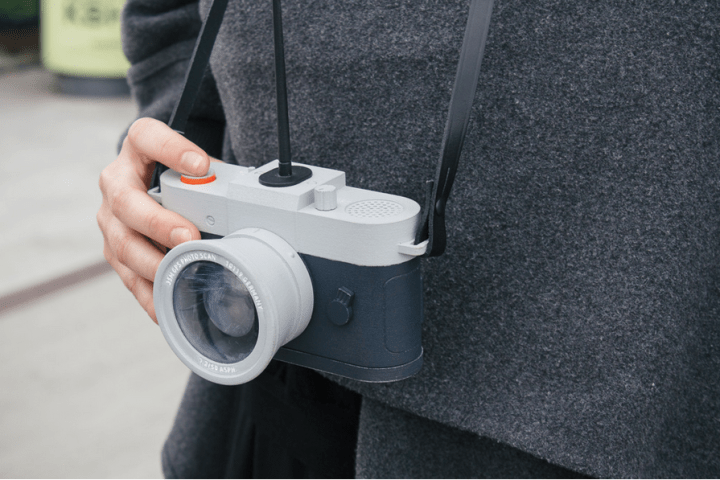
The Camera Restricta works by using GPS to pinpoint your location and then gauging the density of other geotagged photos that appear within a 115 square-foot-radius. If the camera determines that there are too many (including ones that you’ve taken yourself), you simply won’t be able to get a shot — instead, the camera will click at you, and the lens will retract.
Schmitt, a German designer, notes that this latest invention of his simply expands on existing technologies already employed by high-tech cameras and image sensing. “Algorithms are already looking through the viewfinder alongside with you: they adjust settings, scan faces, and take a photo when you smile,” he says. “What if your grin wasn’t the only thing they cared about?”
While mass consumption of online media certainly comes with a lengthy list of both pros and cons, many creative workers and artists have long lamented the apparent lack of originality that has resulted from apps that allow you to both edit and share every moment of your life. But with Camera Restricta, some hope that even the amateur photographer will be forced to examine potential Kodak moments with a more critical eye, and look harder to find unique shots.
On his website, Schmitt wrote, “Camera Restricta could be a controversial tech product, promising unique pictures by preventing the user from contributing to the overflow of generic digital imagery.” It is, after all, nothing more than an “obedient tool” that could ultimately be used by governments looking to censor photographs, as the European Parliament attempted back in July when they proposed a measure that would stymie tourists’ right to photograph copyrighted buildings and sculptures.
While this measure was ultimately defeated, inventions like the Camera Restricta certainly make that seem like an easy restriction to implement.
So take your token shots while you can, folks. Soon, you may be forced to be a bit more original.




